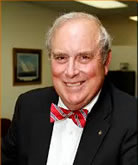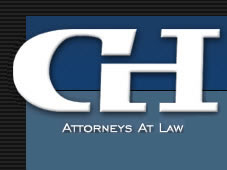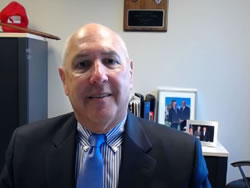I have been active as an insurance agent/broker for 40 years. 20 years ago I was referred to an attorney by a fellow CPCU colleague to be a so called "expert". The case involved an agent who failed to provide workers compensation benefits to an ongoing commercial concern. I was hired by the plaintiff's attorney to opine on the conduct of the agent. Since this was a fundamental error on the part of the agent, the case was soon settled in favor of the plaintiff. This was my introduction to being an expert. I found I enjoyed the experience and it was a nice contrast to sales and insurance administration.
Through the years I have been involved in over 80 Expert assignments. There are many cases that I have refused because they lacked merit. Fortunately over 95% of my income is derived as an agent/broker and this is a key ingredient in my credibility as a consultant/expert witness. I do not have to rely on consulting income to make a living.
What about those consultants whose very survival depends on landing case assignments? Are they in a position to refuse a consulting opportunity that comes their way? Will they manipulate the facts to substantiate their opinion just to collect a fee?
Most consultants/experts are ethical and will not submit to the temptation of taking on an assignment where the facts are in conflict with their professional beliefs. However, there are some that are "guns for hire" and will carve out a scenario to please their hiring attorney and are prepared to serve as an expert even when their opinions can be assailed by the evidence presented. Unfortunately there is no mechanism by which an expert can be reprimanded for advocating a position that is clearly rejected by the industry they represent.
I was involved in a case where there were experts on both sides of a matter. The case involved an agent that "rubber stamped" an existing insurance program even though there were errors in coverage and limits. I worked for the attorney for the plaintiff in the matter. The plaintiff was a victim of an agent who merely copied what was an inferior insurance portfolio. The agent failed to underwrite or inquire as to what limits and coverages were appropriate and necessary. The opposing expert defended the agent by advocating the position that the insured was satisfied with the previous insurance design and the new agent was just delivering an "as is" scenario for the renewal. In other words he argued that since the previous agent made mistakes, the new agent shouldn't be responsible for perpetuating the mistakes.
The recognized tenet in the insurance industry is that an existing insurance program is not a blue print for a replacement program. An existing design can provide useful information and a basis for discussion but it should not be a template for continued coverage. The agent should approach the risk from ground 0-reunderwriting the entire insurance program from the bottom up.
Unethical consultants/experts can muddy the waters and even sway judges and juries who do not have the knowledge or sophistication to understand or challenge erroneous positions. They can interpret and distort the facts and do an injustice in a matter through their charisma and touting of credentials. I think there should an ethics review panel in every industry to evaluate controversial expert testimony and to chastise or penalize those who abuse their role in providing opinions.
Guy C. Hatfield, CPCU, CIC, Guy Hatfield has been a Principal at his Firm since 1977. Prior to his insurance career he was a senior loan officer at Citicorp in New York City where he coordinated syndicated commercial loans with correspondent banks in the Continental United States, Canada, and Hawaii. Mr. Hatfield serves on the Technical Committee of the Ct. Insurance Agents Association and as District Insurance liaison for Rotary International. He is a graduate of Bucknell University (B.S.), Boston University (MBA) and the American Institute of Insurance (CPCU).
©Copyright - All Rights Reserved
DO NOT REPRODUCE WITHOUT WRITTEN PERMISSION BY AUTHOR.











